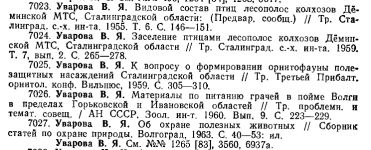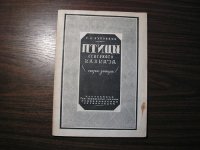l_raty
laurent raty
He was an entomologist and I see no suggestion he did anything about birds...Could the author be Борис Петрович Уваров (1888–1970) here?
In Dement'ev & Gladkov, the name appears (under Prunella modularis modularis L.) as:
= "Synonym. Prunella modularis belousovi. Uvarova. Avifauna of the Basseg mountain range, its ecological and zoogeografical connection (summary), 1950, Northern Urals."Синоним. Prunella modularis belousovi. Уварова. Орнитофауна горного хребта Бассег, ее экологические и зоогеографическне связи (автореферат), 1950, Сев. Урал.
If the author's name was "Уваров" ("Uvarov"), then "Уварова" ("Uvarova") is a genitive case. Genitive is sometimes used to indicate authorship in Russian (as it is in Latin), on book covers for example. But elsewhere, D&G cited the name of Russian authors in the nominative. For example, on p.81, under Muscicapa striata neumanni Poche, you see:
= "Synonyms: Butalis grisola var. pallida. Zarudny. Birds of eastern Persia, 1903, p. 363, eastern Iran."Синонимы: Butalis grisola var. pallida. Зарудный. Птицы вост. Персии, 1903, стр. 363, вост. Иран.
"Зарудный" ("Zarudny") is a nominative case; the genitive would be "Зарудного" ("Zarudnogo") in modern spelling, "Заруднаго" ("Zarudnago") in pre-1918 spelling (this is how it appears [in the work that D&G were citing]).
I see no good reason why they would have opted for a genitive in the case of "Uvarov", but not elsewhere in similar situations.
(There is perhaps a possibility that they did not do it deliberately, however, having just taken the name as it was written on the work, not knowing if it was nominative or genitive.)
"Уварова" ("Uvarova") can also be a nominative, but then it will be feminine.
Last edited:








